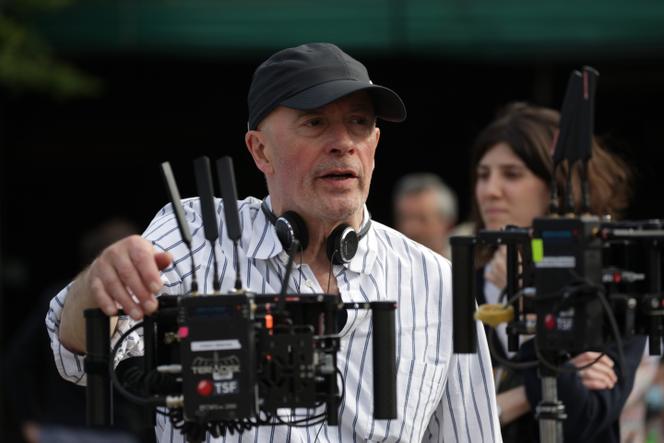


Emilia Perez is Jacques Audiard's 10th feature film. A popular auteur and lover of genre cinema, with no disdain for ostentatious style, he further pushes the boundaries with this queer Mexican musical comedy put through the criminal film mixer and shot in a studio at Bry-sur-Marne, a Paris suburb. The film, shortlisted for the Palme d'Or, was a hit at the Cannes Film Festival in May, where it won the Jury Prize as well as the Best Actress award for all its female leads: Selena Gomez, Zoe Saldaña and Karla Sofia Gascon.
It goes back to 2019, my memories are colliding. But the impetus certainly came from a chapter in the novel by Boris Razon, Ecoute ("Listen," 2018), in which a hyperviolent drug trafficker bends his fate by undergoing a gender transition. This book completely surprised me, and it's the way it surprised me that eventually surprised me – as if it crystallized something that was already there. Likewise with the desire for a musical. As far back as Un héros très discret (A Self-Made Hero, 1996), around 30 years ago, the composer Alexandre Desplat and I had the idea of writing a little opera. But then laziness annihilated us. Then it came up again with my co-writer Thomas Bidegain, and we gave up again. So, obviously, there was a need to clarify the use of music on my side. As a result, the first text I wrote for this film was an opera libretto.
That, too, came immediately. French was absurd, English indecent.
Firstly, because the film is set in Mexico. Secondly, because French is an accented language, an embarrassing language, even if it is sublime in Debussy. It's not a musical language like English or Spanish.
Yes, particularly at the time of Les Frères Sisters (The Sisters Brothers, 2018). The saloon owner was a trans actress. But what's interesting here is that the trans character finds herself at the center of a universe where machismo reigns supreme. It's this paradox that's fruitful.
I was very lost. Initially, I'd imagined young actresses, but it wasn't until I met Karla that I realized that the characters had to be of an age that allowed us to envisage a life, a past, a depth. When I discovered Karla, I had the immediate feeling that the hardest part was behind me, that I couldn't hope to find anyone better for the role. Firstly, because she had all that past behind her, which gave her a serious frame. Secondly, because she's a very witty, lively person. She's a formidable actress.
You have 43.77% of this article left to read. The rest is for subscribers only.
